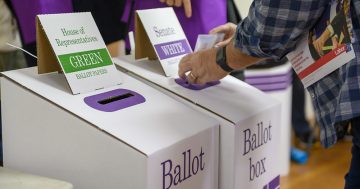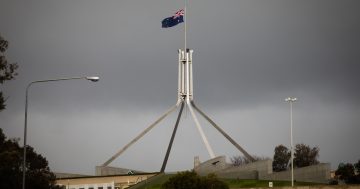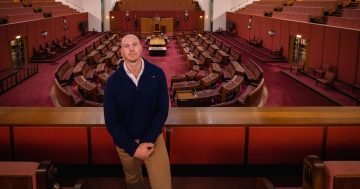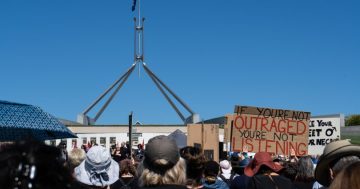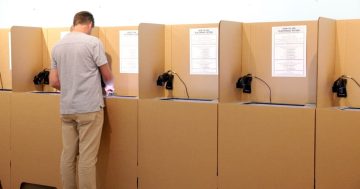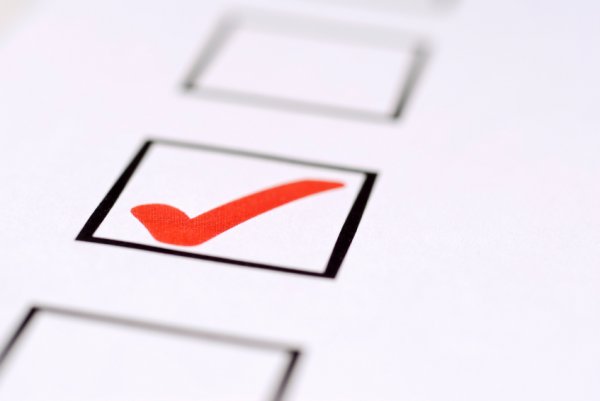
Anyone see John Warhurst’s article in last week’s Crimes? It was on voting reform. He made a number of good points.
One was that the report from the Joint Standing Committee on Electoral Matters (JSCEM) was just released and it would be probably only of interest to “the smallish number of people who find electoral matters riveting.” He’s right on here. Watching paint dry or grass grow sometimes has more appeal.
However, the issues he raises are worth a conversation and I enjoin such with a certain amount of bias. My bias comes not from my membership of a political party, although that did influence my view in the early days. It comes from being in a parliament filled with people elected on the proportional representational basis, a system which I find inherently flawed in terms of having someone in the parliament to represent people, read: go to battle for them.
The proportional representation model throws up a number of fringe groups and while they may have a legitimate gripe are still usually single issue zealots who have a single mindedness which cannot translate into representing people who disagree with their views.
Remember please the Party! Party! Party! Party, the Sun-Ripened Warm Tomatoes Party. Who can forget the Abolish Self Government Party which had Dennis Stevenson elected and all he did was take advantage of the perks. How about the No Self Government Party, where one of their number ended up as a minister. So much for philosophical commitment!
What about the Community Action Party, one of whose candidates admitted that he had been a member of the Liberal Party for 40 years? Was this a “dummy” party to ensure the election of a conservative government? Good question that!
Proportional representation is a furphy. People should admit that it is really only a vehicle for self -interested “would be if they could be” types who suffer relevance deprivation syndrome.
I don’t see why a group of people whose membership can fit inside an ensuite in a 10 square house should be guaranteed a seat in any parliament.
The system in the ACT allowed a minor party to get 12 per cent of the vote in Molonglo and get elected and what happened? We ended up with a Greens minister! That was a good idea, wasn’t it? Thank God it is now 5 x 5 and people need 16.6 per cent.
But back to actual representation of people in the electorate.
I spent nine-and-a-half years as a non-Executive MLA and saw first-hand how a multi-member electorate functioned. It didn’t.
I was one of five members in a multi-member electorate and can tell you that not all members were all that dedicated to their constituents. Some just couldn’t work in an iron lung and some were only interested in the easy issues and others were MIA a lot of the time.
The problem with this is that if an elected member is one of five in an electorate of 65,000 voters, he or she doesn’t know which 13,000 people are his or hers, so services have to be provided to them all. When some Members don’t provide the service, the load becomes very large and very time consuming. It is also very rewarding but exhausting.
Proportional representation is effective when people are dependent on their brand. The major prizes are always taken by Liberal or Labor with the fringe dwellers picking up the scraps.
When the electorate is unhappy enough, they take it out on the brand and not individual Members although this can (and did, in Brindabella in 2004) happen. Mediocrity can survive and flourish and factional hackery can rise to the top. All major parties are guilty of this one.
Single member electorates mean that the member is solely accountable to the electorate. There is no place to hide. If people are happy with a brand and unhappy with a representative from that brand, they can toss them out and start again. It is a bit harder with proportional representation. I’d love to be proved wrong, but I don’t reckon it is gunna happen soon.
Parliaments filled with cardboard cut-outs are the result of complacency and mediocrity is rewarded by longevity. Parliaments filled with parliamentarians who are committed to their electors and are not professional politicians can come up with good government if given a chance. But fringe parties who are single issue zealots are not the answer.
Proportional representation is a nice idea in a utopian world filled with people of good intention. Xanadu!












